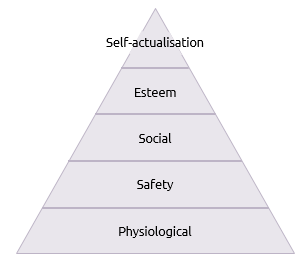This question was recently asked in a LinkedIn forum. It went on to say that Maslow was ‘disproven in the 1950s’ so we should not continue to teach it.
In case you didn’t know. Maslow’s ‘hierarchy of needs’ is a theory of motivation published by Abraham Maslow in 1943. It was never based on any empirical research and was, in effect, Maslow’s opinion from his own experience.
Its popularity arises from the fact that it ‘feels right’ on an intuitive level. In effect, any ‘disproval’ of Maslow’s theory would be a disproval if his opinion – which doesn’t make sense.
But there is a bigger issue that this question touches upon. How should we regard the standard models of human behaviour that are frequently quoted in all management (not just project management) training?
If you have been on one of these courses, you may well have been introduced to Hersey and Blanchard (Situational Leadership), Tuckman (Teamwork) or Thomas-Kilman (Conflict Management) to name but three.
There are a myriad of these models to describe many different aspects of human behaviour. Different models were, and continue, to be developed using varying degrees of empirical observation. No doubt some use statistics to validate their results but these are no ‘Standard Model’ in the mould of particle physics. No one will claim to have defined human behaviour to the 5-sigma degree of certainty required to prove the existence of the Higgs Boson.
All models of human behaviour are approximate theories. They are not taught because they are proved; they are taught because they make you think about people and the way they behave, in a structured way.
These models should always be taught in a way that emphasises that they are ‘ideas’. There are conflicting and complementary ideas – all of which provide a framework to organise personal experience in a more efficient way.
So the next time someone teaches you about one of these models, see it for what it is – a starting point to try and understand how people behave, not a set of rules that people always adhere to.
Maslow’s hierarchy of needs will never be ‘proven’ and equally I don’t see how it could be ‘disproven’. But it does have enough intuitive sense to make you start thinking about motivation and, hopefully, make you want to learn more.





